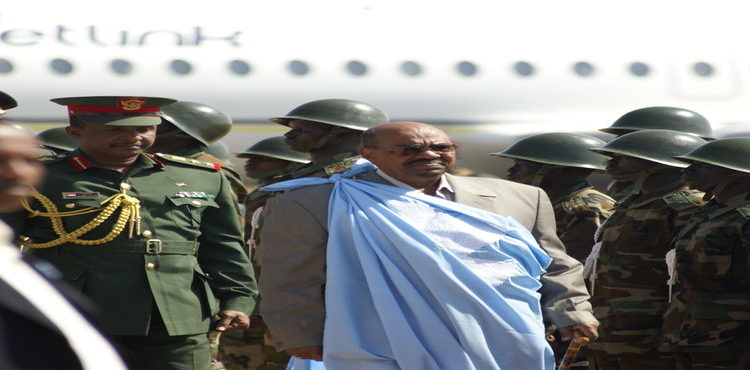Civil society organizations (CSOs) have asked the Government of Uganda to arrest and surrender President Al-Bashir to the International Criminal Court to face trial for alleged perpetration of crimes against humanity, genocide and war crimes in Darfur.
The Government of Uganda is said to be hosting President Al Bashir on an official State Visit from the 13th -15th of November 2017, at least seven years after the International Criminal Court issued two warrants of arrest against him on March 4, 2009 and July 12, 2010.
In a press statement issued on November 13, 2017 the six CSOs cited the obligations under international and domestic laws that ties down Uganda to arresting and surrendering President Omar Al Bashir of Sudan should he be found on Ugandan territory.
Uganda is a State Party to the Rome Statute of the International Criminal Court having signed the treaty on 17 March 1999, and ratified it on 14 June 2002. Uganda has further domesticated the Rome Statute of the International Criminal Court through the International Criminal Court Act, of 2010, which contains provisions that set out obligations for close cooperation with the court regarding the arrest and surrender of persons for whom arrest warrants have been issued.
As a state party to the Rome Statute, Uganda has an unequivocal obligation to cooperate with the ICC in relation to the enforcement of warrants of arrest issued against Omar Bashir, which stem from the United Nations Security Council Resolution 1593, whereby the United Nations Security Council urged States to cooperate fully’ with the ICC.
In May 2016, Omar Bashir travelled to Uganda to attend the Inauguration Ceremony of President Yoweri Museveni. Despite the clear obligations to cooperate with the Court, Uganda did not arrest Omar Al-Bashir and surrender him to the ICC to face trial. Consequently, the Pretrial Chamber of the ICC found Uganda to have failed to comply with its duty to arrest and surrender Omar Al-Bashir to the Court, in accordance with article 89(1) of the Rome Statute, and referred Uganda to the Assembly of State Parties and the UN Security Council.
Article 27 of the Rome Statute disregards the official capacities of Heads of state and states that immunities of Heads of States are of no consequence to the court’s processes. The Pretrial Chamber of the ICC in proceedings to determine whether Uganda had contravened its obligations, under the Rome Statute by failing to arrest Bashir when he was in its territory in May 2016, reiterated that the UN Security Council, acting under Chapter VII of the United Nations Charter, had effectively lifted the immunities of Omar Al-Bashir in Resolution 1593(2005), and therefore a State (Uganda) could not invoke immunities as a justification for failure to arrest and surrender Bashir to the ICC.
Uganda also has obligations under the Constitutive Act of the African Union that obliges states to take measures to fight impunity; this is in addition to obligations under the Great Lakes Protocols that call upon states to arrest and surrender persons who may have committed serious crimes.Further, inviting an international criminal suspect to Uganda not only undermines the fight against impunity which Uganda has for long championed but also betrays the concerns and interests of the Victims of the most heinous crimes.
They urge the government of Uganda to fulfill its obligations under international and domestic laws by arresting and surrendering President Omar Al Bashir should he be found on Ugandan territory. They also call upon the President of Uganda and other Government representatives to support the ICC in its endeavor to fight impunity and achieve global justice. Finally, they urge the Government of Uganda to maintain a consistent approach to its already existing and embraced commitments to Rome Statute System.







